Rising Powers Initiative

Deepa Ollapally
Director
Deepa Ollapally (she/her) is a political scientist specializing in Indian foreign policy, India-China relations, and Asian regional and maritime security. She is Research Professor of International Affairs and the Associate Director of the Sigur Center. She also directs the Rising Powers Initiative, a major research program that tracks and analyzes foreign policy debates in aspiring powers of Asia and Eurasia.
Dr. Ollapally is currently working on a funded book, Big Power Competition for Influence in the Indian Ocean Region, which assesses the shifting patterns of geopolitical influence by major powers in the region since 2005 and the drivers of these changes. She is the author of five books including Worldviews of Aspiring Powers (Oxford, 2012) and The Politics of Extremism in South Asia (Cambridge, 2008). Her most recent books are two edited volumes, Energy Security in Asia and Eurasia (Routledge, 2017), and Nuclear Debates in Asia: The Role of Geopolitics and Domestic Processes (Rowman & Littlefield, 2016).
Dr. Ollapally has received grants from the Carnegie Corporation, MacArthur Foundation, Smith Richardson Foundation, Ford Foundation, the Rockefeller Foundation, and the Asia Foundation for projects related to India and Asia. Previously, she was Associate Professor at Swarthmore College and has been a Visiting Professor at Kings College, London and at Columbia University. Dr. Ollapally also held senior positions in the policy world including the US Institute of Peace, Washington DC and the National Institute of Advanced Studies, Bangalore, India. She is a frequent commentator in the media, including appearances on CNN, BBC, CBS, Reuters TV, and the Diane Rehm Show. She holds a Ph.D. in Political Science from Columbia University.
Partnerships for International Strategies in Asia
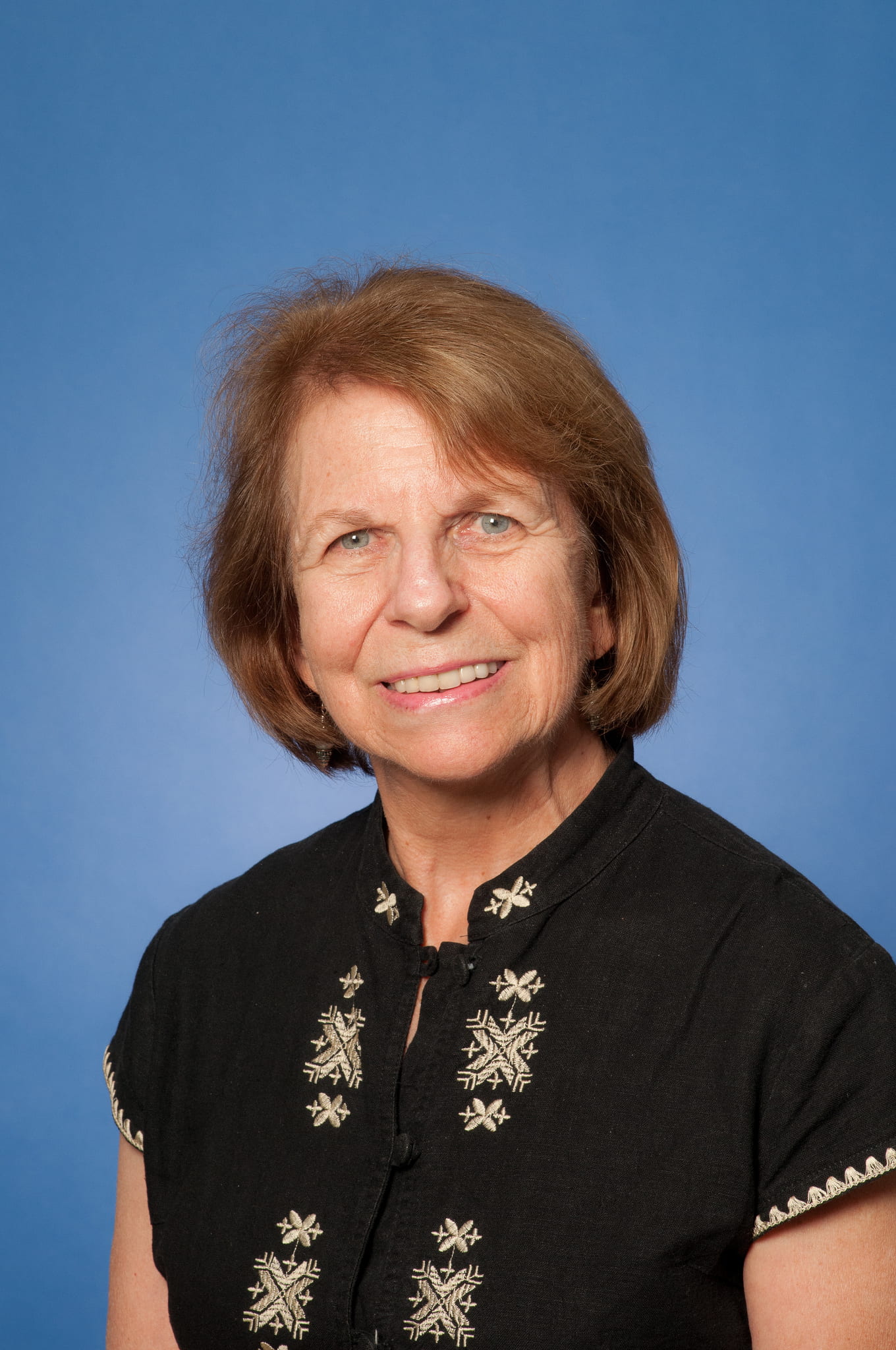
Linda J. Yarr
Director
Linda J. Yarr (she/her) joined the Elliott School as Director of Partnerships for International Strategies in Asia (PISA) in June 1996. She began her work for PISA in 1995, when PISA was located within the American Council for Learned Societies. PISA promotes international affairs education training and research in partnership with leading agencies and institutions in Asia. Ms. Yarr has secured foundation grants and private donations to underwrite all of PISA’s activities and designed its collaborative and path-breaking programs in Asia. In 1994-1995, Ms. Yarr taught a research course on conflict resolution at American University. From 1987 to 1994, she was assistant professor of global political economy at Friends World College (subsequently the Friends World Program of Long Island University). In addition to teaching global political economy and experiential education, Ms. Yarr guided students in active learning projects and designed a program in global women’s studies. From 1983 to 1987, she offered courses in comparative politics, development, gender, and the Vietnam War at the University of Colorado, Boulder, and the University of Denver.
Ms. Yarr has held visiting scholar appointments at the Helsinki Collegium for Advanced Studies, the Institute for Malaysian and International Studies of the National University of Malaysia, the School of International Service of American University, and the Rocky Mountain Women’s Institute.
China Policy Program

David Shambaugh
Director
David Shambaugh (he/him) is an internationally recognized authority and award-winning author on contemporary China and the international relations of Asia. He is the Gaston Sigur Professor of Asian Studies, Political Science & International Affairs, and the founding Director of the China Policy Program in the Elliott School of International Affairs at George Washington University. From 1996-2016 he was also a Nonresident Senior Fellow in the Foreign Policy Studies Program at The Brookings Institution. Professor Shambaugh was previously Lecturer, Senior Lecturer, and Reader in Chinese Politics at the University of London’s School of Oriental & African Studies (SOAS), 1987-1996, where he also served as Editor of The China Quarterly. He has served on the Board of Directors of the National Committee on U.S.-China Relations, Advisory Board of the National Bureau of Asian Research (NBR), East-West Center Fellowship Board, is a life member of the Council on Foreign Relations and member of its Board of Studies, is a participant in the Aspen Strategy Group, and other public policy and scholarly organizations. An active public intellectual and frequent commentator in the international media, he also serves on numerous editorial boards, and has been a consultant to governments, research institutions, foundations, universities, corporations, banks, and investment funds.
He has been selected for numerous awards and grants, including as a Fellow at the Woodrow Wilson International Center for Scholars, a Senior Scholar by the Phi Beta Kappa Society, and a Senior Fulbright Scholar (Chinese Academy of Social Sciences). He has received research grants from the Ford Foundation, Rockefeller Foundation, Smith Richardson Foundation, German Marshall Fund, Hinrich Foundation, the British Academy, U.S. National Academy of Sciences, and has been a visiting scholar or professor at universities in Australia, China, Denmark, Germany, Hong Kong, Italy, Japan, New Zealand, Russia, Singapore, Taiwan, and he has lectured all over the world.
As an author, Professor Shambaugh has published more than 30 books, including most recently International Relations of Asia (third edition, 2022); China’s Leaders: From Mao to Now (2021); Where Great Powers Meet: America & China in Southeast Asia (2021); and China & the World (2020). Other books include The China Reader: Rising Power (2016); Tangled Titans: The United States and China (2012); China’s Communist Party: Atrophy & Adaptation (2008); Power Shift: China & Asia’s New Dynamics (2005); and Modernizing China’s Military (2002); Making China Policy (2001); The Modern Chinese State (2000); Chinese Foreign Policy: Theory & Practice (1994); American Studies of Contemporary China (1993); and Beautiful Imperialist (1991). He has also authored numerous reports, scholarly articles and chapters, newspaper op-eds, and book reviews. He is reasonably fluent in Chinese, and has some French, German, and Spanish.
Tibet Governance Project
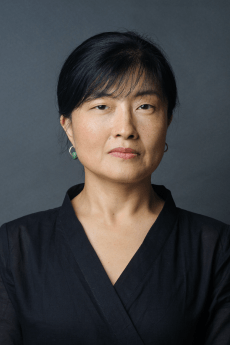
Tashi Rabgey
Director
Tashi Rabgey (she/her) is Research Professor of International Affairs at the Elliott School where she directs the Research Initiative on Multination States (RIMS) and the Tibet Governance Project (Tibet GovLab). The Tibet Governance Project advances scholarship, research, and new perspectives on key issues of governance and public policy in contemporary Tibet. The program promotes research initiatives and program activities that produce fresh insights, analyses, and approaches to understanding the social, economic, and institutional challenges confronting the Tibetan region. Professor Rabgey’s primary research focuses on asymmetric governance, territoriality, and the problems of contemporary statehood in the People’s Republic of China. Her interdisciplinary work draws on the fields of political and legal anthropology, international legal theory, contemporary Tibetan studies, and comparative Chinese law.
Professor Rabgey led the development of the TGAP Forum, a research initiative that engaged policy researchers from the Chinese State Council in Beijing, as well as global academic partners, which developed new insights and strategies for developing research into the institutional structure and dynamics of China’s policymaking in Tibet. Her current writing projects include a long term political study of the Chinese state, as well as studies of territoriality, the rescaling of governance, the regionalization of public interests and demands in the People’s Republic of China. She is also completing a project on legal pluralism, nationality law and the effects of sovereignty in post-democratization Taiwan. She is a Visiting Professor at the University of Kurdistan Hewler where she teaches and supervises Ph.D. students.
Her current writing projects include a long term political study of the Chinese state, as well as studies of territoriality, the rescaling of governance, the regionalization of public interests and demands in the People’s Republic of China. She is also completing a project on legal pluralism, nationality law and the effects of sovereignty in post-democratization Taiwan. She is a Visiting Professor at the University of Kurdistan Hewler where she teaches and supervises Ph.D. students.
Before joining the Elliott School, Professor Rabgey was a faculty member of the University of Virginia East Asia Center where she was co-director of the University of Virginia Tibet Center. She held a lectureship in contemporary Tibetan studies and taught in comparative politics and global development studies. She is also co-founder of Machik, a nonprofit organization that has been developing strategies for creative development and social innovation in Tibet for over twenty years. She was also a Fellow in the Public Intellectuals Program of the National Committee on U.S.-China Relations from 2011-2013.
Taiwan Education and Research Program
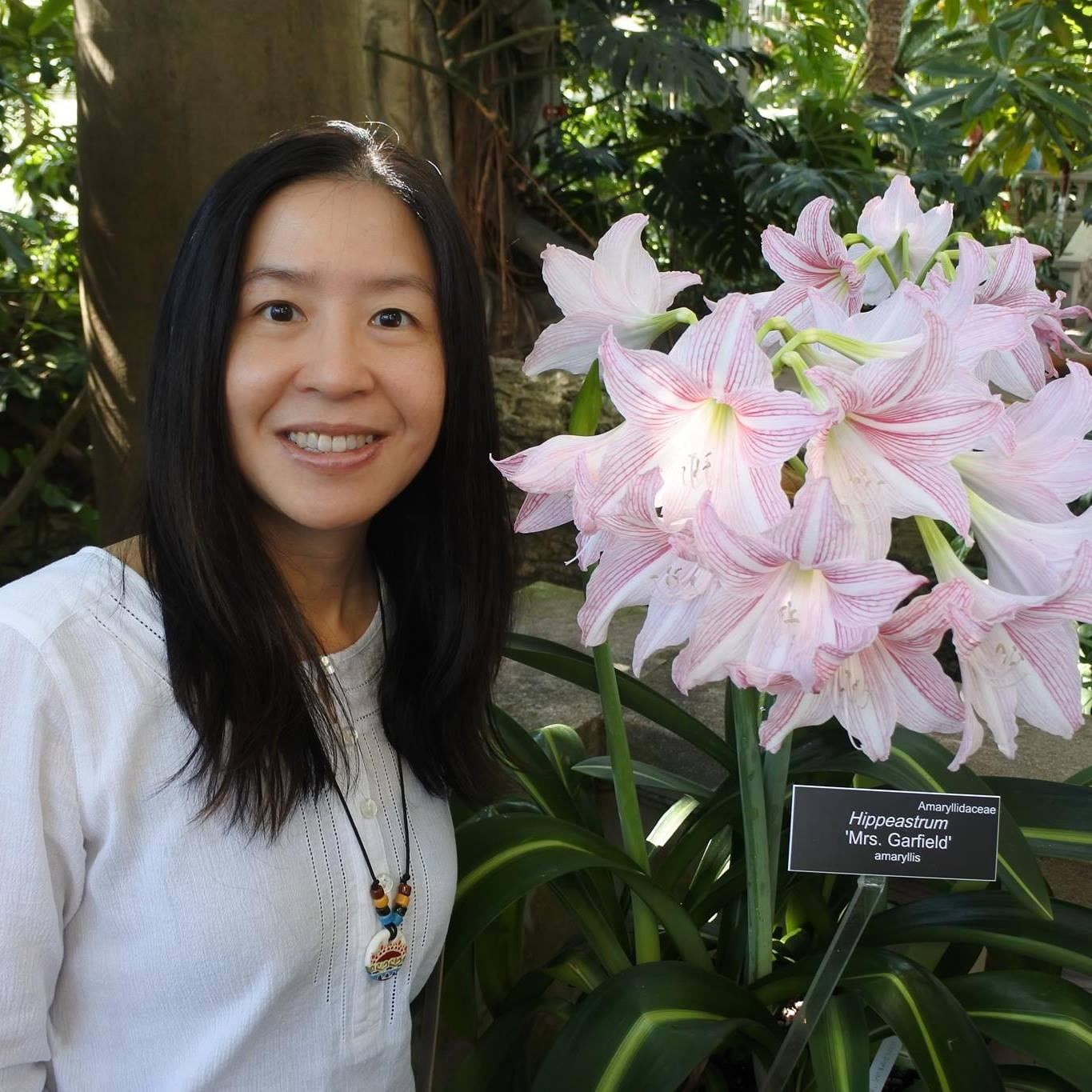
Liana Chen
Director
Liana Chen (she/her) is an Assistant Professor in the Department of East Asian Languages and Literatures and director of the Chinese Program and the Taiwan Education and Research Program. She is the author of Literati and Actors at Work: The Transformations of ‘Peony Pavilion’ on Page and on Stage in the Ming and Qing Dynasties. Her second book, Staging for the Emperors: A History of Qing Court Theatre, 1683-1923, which examines the ideological and aesthetical roles of the imperial court theatre of the Qing Dynasty, is forthcoming from Cambria Press in 2021.
Professor Chen received her Ph.D. in Chinese Literature with a concentration in Chinese drama and theatre from Stanford University. Her areas of teaching and research focus on Chinese drama and theatre, Chinese literature of the Ming and Qing dynasties, and Taiwanese literature and film. Liana Chen’s research has been supported by the Foundation for Development of Chinese Culture (Taiwan), The American Council of Learned Societies, and Sigur Center for Asian Studies at GW.
Professor Chen received her Ph.D. in Chinese Literature with a concentration in Chinese drama and theatre from Stanford University. Her areas of teaching and research focus on Chinese drama and theatre, Chinese literature of the Ming and Qing dynasties, and Taiwanese literature and film. Liana Chen’s research has been supported by the Foundation for Development of Chinese Culture (Taiwan), The American Council of Learned Societies, and Sigur Center for Asian Studies at GW.
Memory and Reconciliation in the Asia Pacific
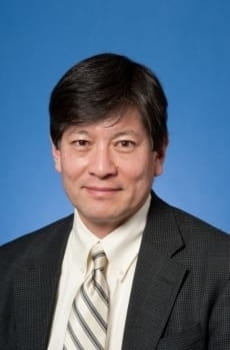
Mike Mochizuki
Co-Director
Mike Mochizuki (he/him) is Associate Professor of Political Science & International Affairs, Japan-U.S. Relations Chair in Memory of Gaston Sigur, Director of the Bachelor in International Affairs programs, and co-director of the Memory and Reconciliation in the Asia Pacific program. Professor Mochizuki was director of the Sigur Center for Asian Studies from 2001 to 2005. Previously, he was a Senior Fellow at the Brookings Institution. He was also Co-Director of the Center for Asia-Pacific Policy at RAND and has taught at the University of Southern California and Yale University.
Professor Mochizuki’s research interests include Japanese foreign policy and domestic politics, U.S.-Japan relations, and international relations in East Asia.
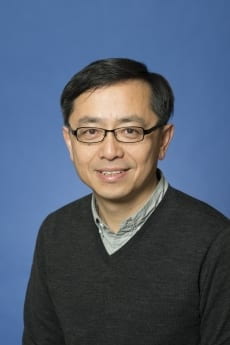
Daqing Yang
Co-Director
Daqing Yang (he/him) is Associate Professor of History & International Affairs. A native of China, Professor Yang graduated from Nanjing University and received his Ph.D. from Harvard University. He specialized in the history of modern Japan. His research interests include the Japanese empire, technological developments in modern Japan, and the legacies of World War II in East Asia.
In 2004, Professor Yang was appointed a Historical Consultant to The Nazi War Crimes and Japanese Imperial Government Records Interagency Working Group at the U.S. National Archives. In fall 2006, Professor Yang served as the Edwin O. Reischauer Visiting Professor of Japanese Studies at Harvard University.
Professor Yang is a founding co-director of the Memory and Reconciliation in the Asia Pacific program based in the Sigur Center for Asian Studies, and is currently working on a new project on postwar China-Japan reconciliation. He is the author of Technology of Empire: Telecommunications and Japanese Expansion in Asia, 1883-1945. He co-edited the following books: Historical Understanding that Transcend National Boundaries, which was published simultaneously in China and Japan; Rethinking Historical Injustice and Reconciliation in Northeast Asia; and Communications Under the Seas: The Evolving Cable Network and Its Implications.

